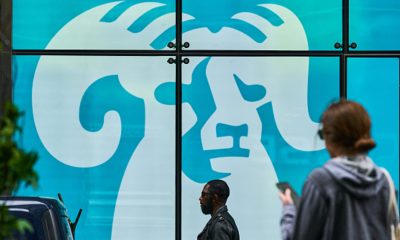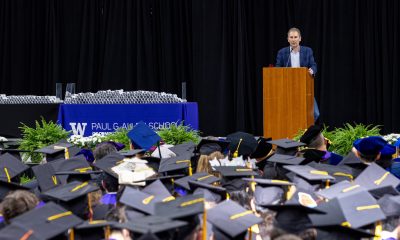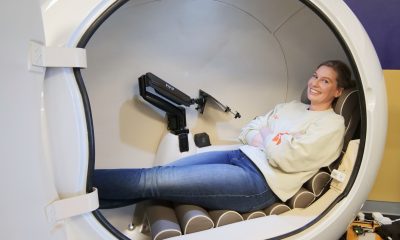Tech
UW researchers studying disinformation will carry on with their work despite reports of a crisis within the Stanford group.

The University of Washington and Stanford University were once part of a nonpartisan coalition that monitored the spread of political misinformation and disinformation online during the 2016 presidential campaign. However, as concerns around political rumors and false narratives continue to grow during this year’s presidential race, the coalition is no longer active and Stanford’s program is reportedly “dismantling.” Nevertheless, researchers at the UW’s Center for an Informed Public (CIP) are dedicated to continuing their work. The CIP, founded in 2019, has a team of about 20 researchers currently focused on identifying and addressing emergent rumors and disinformation campaigns, especially during the 2024 election.
The UW and Stanford have faced lawsuits and efforts to discredit their work from conservative groups and Republican leaders. These attacks have been linked to the reported decision to wind down the Stanford Internet Observatory, despite university officials stating that the group is not shutting down. The former coalition, known as the Election Integrity Partnership, was dedicated to monitoring harmful activities that could impact the democratic process, such as attempts to suppress voting, reduce participation, confuse voters, or delegitimize election results without evidence. The partnership stopped operating after the 2022 election.
The right-wing activist group Project Veritas filed a defamation lawsuit against the UW and Stanford in 2021 over a blog post that accused them of promoting election disinformation. The lawsuit was dismissed in 2022 by a federal judge. Another lawsuit filed last year alleged censorship of Americans’ speech and targeted specific leaders at Stanford and the UW who were involved in the Election Integrity Partnership. Despite these legal challenges, researchers at the CIP remain dedicated to their work on identifying and combatting misinformation.
Recent developments have seen key leaders leaving the Stanford Internet Observatory, including Renée DiResta, the technical research manager. DiResta has joined the scientific advisory board for TrueMedia, a new Seattle-based organization that detects political deepfake videos, photos, and audio. TrueMedia is led by Oren Etzioni, a UW professor and former CEO of the Allen Institute for AI. Jevin West, director of the CIP, also serves on the TrueMedia advisory board. Despite these transitions, the CIP’s Kate Starbird was recently awarded the UW’s prestigious 2024 University Faculty Lecture Award for her impacts on the profession and society as a whole. The CIP is poised to continue their research and efforts to combat misinformation in the upcoming 2024 election and beyond.
In conclusion, the UW’s Center for an Informed Public is continuing its dedicated efforts to research and combat online rumors and disinformation campaigns, despite the dissolution of the former Election Integrity Partnership. The center, founded in 2019, has a team of approximately 20 researchers working to identify and address emergent rumors and false narratives, particularly during the 2024 election. The UW and Stanford have faced legal challenges and efforts to discredit their work, but researchers at the CIP are committed to their mission. Key leaders, including Renée DiResta, have recently transitioned to new roles, with DiResta joining the advisory board of TrueMedia, a Seattle-based organization detecting political deepfakes. Despite these changes, the CIP’s work remains essential in combating misinformation and safeguarding the democratic process.

-

 News6 days ago
News6 days agoPrincess of Wales shares emotional update on her cancer battle, discusses ‘good days and bad days’, and reveals new photo – will attend Trooping the Colour tomorrow to boost national morale.
-

 Lifestyle7 days ago
Lifestyle7 days agoI am a Shopping Writer and These Are the Top 10 Tech Deals Today
-

 Wellness6 days ago
Wellness6 days agoTop 13 Anti-Chafing Products to Add Comfort to Your Active Lifestyle in 2024
-

 Videos5 days ago
Videos5 days agoTop 10 Best Mobile Games of 2024 | Best Android Games 2023 (OFFLINE / ONLINE)
-

 News6 days ago
News6 days agoThousands of English fans travel to Germany by plane, bus, and ferry with St. George’s flags, ahead of the team’s first Euros match tomorrow night.
-

 Sport7 days ago
Sport7 days agoCharles Barkley stands by his criticism of Caitlin Clark, calling it “petty nonsense”: Says it’s “Really bad publicity for the WNBA”
-

 News5 days ago
News5 days agoPoland versus Netherlands – Euro 2024: Live updates on score, team news as Dutch fail to capitalize on opportunities to lead in Hamburg
-

 Investing5 days ago
Investing5 days agoEarly investments in AI have contributed to the outperformance of this global tech fund for a second consecutive year.














